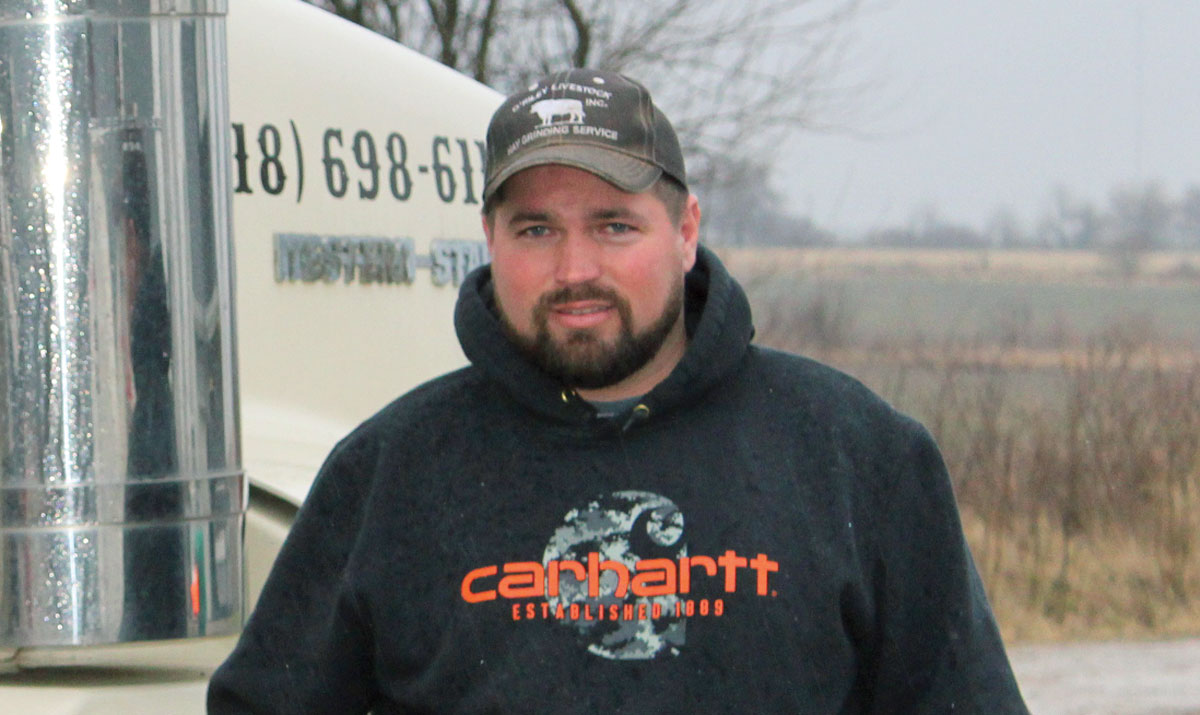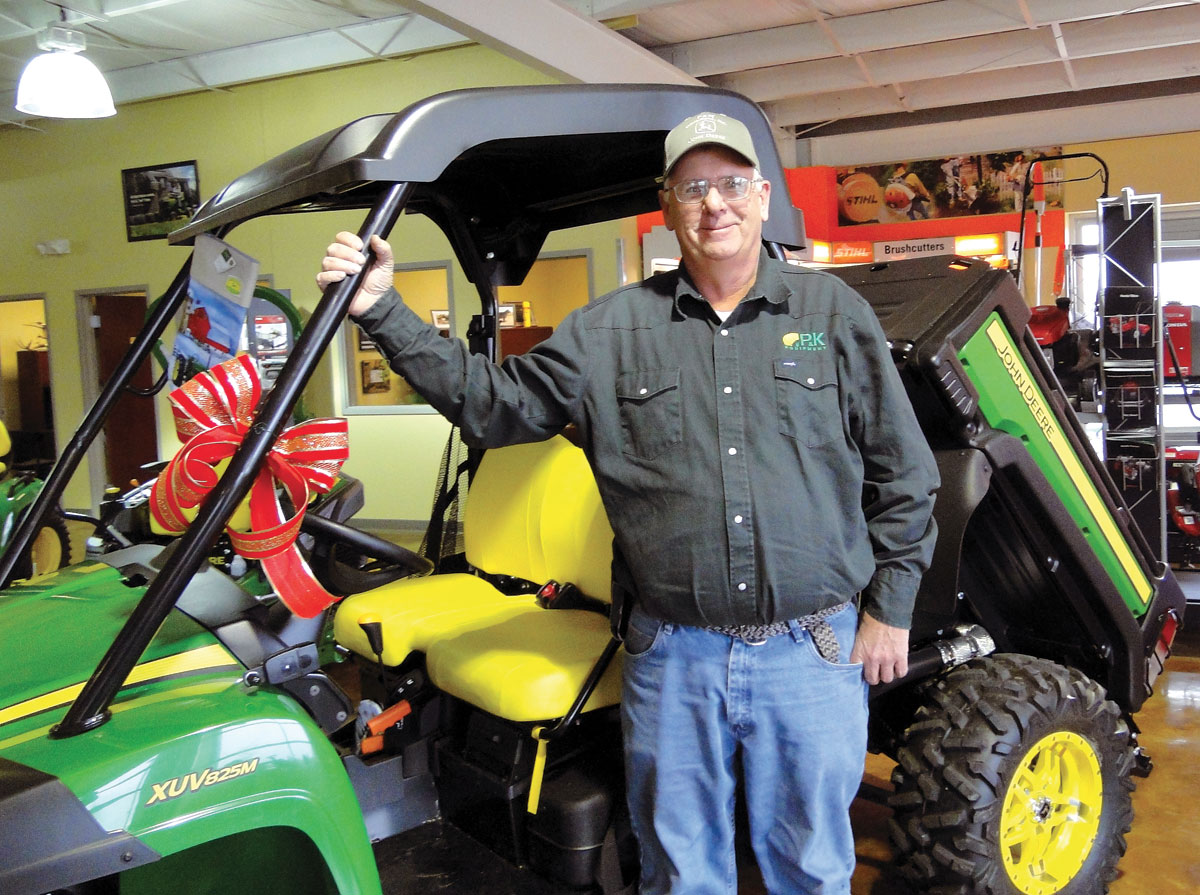
Owner: Adam O’ Riley
Family: Wife, Angela, and two sons, Lane (8) and Holden (7)
Location: Lockwood, Mo.
History: Adam O’Riley raised cattle and backgrounded feeder calves near St. Libory, Ill. A power plant was built near his farm, and issues with a shared watershed forced Adam to cease operation. While Adam was still in the cattle feeding business, he noticed there were few custom feed grinders. The wheels started to turn and he began to explore the idea and the equipment needed to start the venture.
He started his business in June 2012 with the purchase of a hay tub grinder. He has since upgraded to a tub grinder with a loader and has seen an increase in production and efficiency.
His business grew to the point he was spending more time in Missouri and Kansas, than in Illinois, so he and his family moved to Missouri.
Services: O’Riley Livestock, Inc., offers custom hay grinding, hay hauling and hay brokerage services. Adam has approximately 200 customers.
Adam owns two tub grinders. He has the ability to grind hay, grain and miscanthus grass.
The ground grain is typically high-moisture corn that would be stored in a bunker, upright silo or bag. The ground hay is used as an ingredient in a total mixed ration (TMR) for feeding cattle.
“We can also grind damaged grain and ear corn. We do grind some baleage but the shelf life isn’t very long. We have even ground sugar beets before,” Adam explained.
Producers must have the infrastructure on their farm to facilitate the grinding of the hay.
“You do have to have a mixer, a place to put your ingredients, fence-line feed bunks or some way to feed without the cattle tromping it into the ground. Some people do feed it on the ground and get along OK, but it does require some infrastructure,” Adam said.
In late 2017, Adam added a bale truck to his fleet, to provide a hay hauling service to his customers. He can haul 17 round bales per load and up to 500 bales a day.
Utilizing a grinding service offers a variety of savings to producers. Custom grinding allows producers to reduce not only the amount of time spent grinding but also hours on equipment and hired labor. Along with saving time, there is less waste and the added opportunity to utilize bulk commodities, reducing feed costs.
“My customers tell me in some of their vertical mixers it takes 20 to 45 minutes to process a bale. I can grind a bale up in one minute. One of my grinders will do 6,000 to 10,000 bushels per hour and the other will do 6,000 to 14,000 bushels per hour,” he said.






